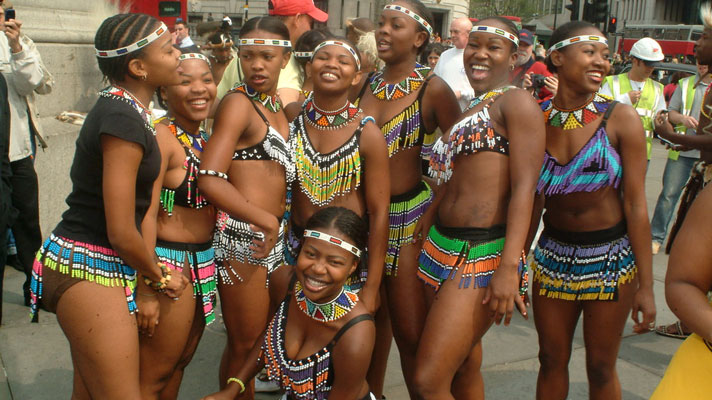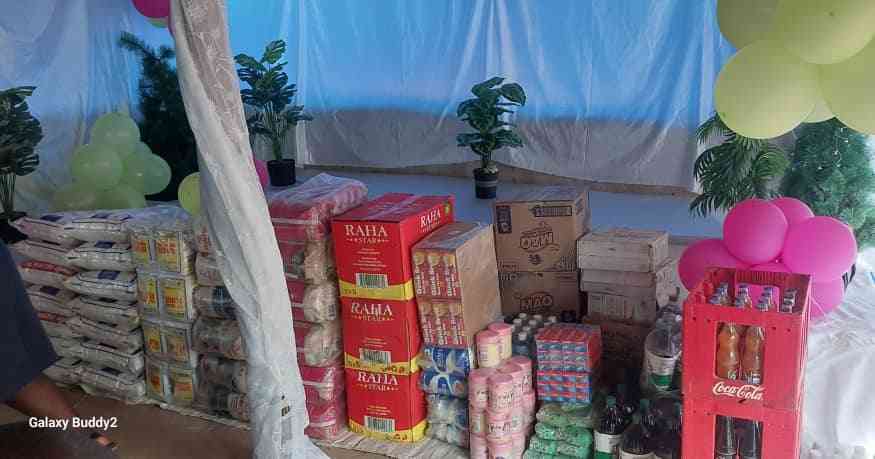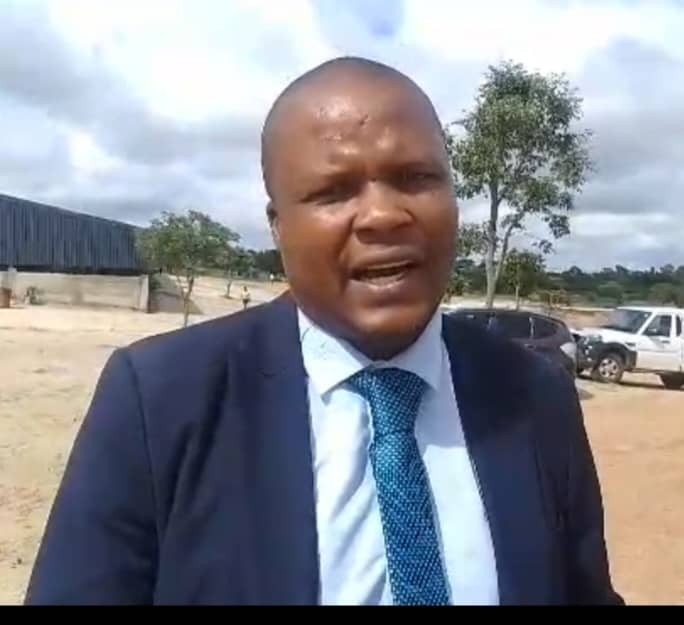
in the groove:with Fred Zindi
As a result of a song released by a South African group, Freshlyground, mocking former president Robert Mugabe, the group was not allowed to perform at the Harare International Festival of the Arts in 2014. This was followed by a directive from the government instructing Immigration and other departments not to allow any outside groups to perform in Zimbabwe unless they had police clearances from their countries. Consequently, many artistes were affected. John Legend, who was supposed to perform here in 2014, decided to cancel his concert.
One unfortunate cultural group, Umoja, which had been coming to Zimbabwe on several occasions before, was also affected by this directive. Umoja was the brainchild of Wilhelm Dahl and the Norwegian National Organisation of Cultural Schools. In 2002, Dahl approached the Foreign Affairs ministry in Norway seeking permission and a grant to implement Umoja in Africa. The ministry agreed and a huge amount of money was given as a grant for this project. He, together with colleagues, Per Skoglun and Koen Schyvens, went to Mozambique, South Africa and Zimbabwe to find out how they would effectively establish the Umoja project. They looked for popular artistes whom they thought would be taken seriously by their communities. Miriam Makeba became the patron of the Umoja project in South Africa and after her death, Ray Phiri took over. Malangatana, a famous artist, was chosen as the Mozambican patron, while in Zimbabwe Oliver Mtukudzi became the patron. The project took the patrons to the four countries where they would also give performances while at the same time nurturing youngsters who were recruited from schools and colleges to participate in musical and dance activities.
Each country would host Umoja consecutively. In 2014, it was Zimbabwe’s turn to host Umoja participants from Mozambique, South Africa and Norway.
I was in Brazzaville, Congo, on an International Music Council visit at the time and I cut short my trip to meet the Umoja group from Norway at the then Harare International Airport. The camp was to be held at Pakare Paye Arts Centre in Norton. Daisy Mtukudzi had prepared lunch for 60 participants. That lunch went to waste as the Umoja participants were deported. Here is the rest of the story as told by Lars Jegleim, the Norwegian team’s tour leader:
“lTuesday July 29, we left Norway by Lufthansa to Frankfurt. Everybody was happy and excited to be part of Umoja 2014. A brand new Ethiopian Airlines Airbus, the Dreamliner, took us from Frankfurt to Addis Ababa during the night.
lWednesday July 30, we woke up in Addis Ababa. More excitement. Finally in Africa! A new Dreamliner flight to Zimbabwe! At the airport we met the team from South Africa and Mozambique. The youngsters were very excited. Finally in Harare!
lThen I got the first phone call from Elisha Herema, an official member and organiser from the Umoja team Zimbabwe. He called from outside the airport. He told me not to say anything about Umoja at the airport. I had to explain to the Norwegian group why and many changed their visa applications. Not a word about Umoja remained on any of our applications.
- Chamisa under fire over US$120K donation
- Mavhunga puts DeMbare into Chibuku quarterfinals
- Pension funds bet on Cabora Bassa oilfields
- Councils defy govt fire tender directive
Keep Reading
l A man, very well-dressed, working at the airport, came to me and told me not to speak to the leaders from South Africa. I thought this was very strange and expressed my dislike. I always say hello and like to be friendly when I see people I know.
lThen the first Norwegian paid his $30, got his visa, and got into the waiting hall. But then the young Norwegians faced a lot of strange questions from the immigration staff at the airport, so they asked for me. I explained that some friends had invited us to Zimbabwe and that we would be dancing and singing together for a few days. They asked if the Norwegian group had a name. I told them no. Then, what seemed to be a higher official in uniform, came and asked me if somebody was waiting for us outside. “I hope so”, I replied. He then asked me to follow him. “I would like to talk to them”, he said. We went outside. Rumbi Chipendo from the Zimbabwean Umoja committee was there, and as usual we gave each other a big hug. What he told Rumbi, I do not know. But I saw that Rumbi became very serious and a little worried. Then he brought me inside again. The whole group was then placed beside the desk and was told to wait there.
lAfter a while, the man in uniform came back with new boarding passes telling me that he had decided to send us back home to Norway immediately. “Nobody will get visa,” he said. I asked him what the problem was. “You all lack some papers from the police in Norway,” he told me. I said there had to be a misunderstanding. However, some other personnel had already taken the youngsters upstairs to a new security check and the gate for departure.
lI was the last one leaving the immigration area. I walked very slowly while I asked the higher official about the situation. At the new security check, a very nice, well-dressed lady approached me and asked me what the problem was. I told her about our situation. She left for a few minutes. After a while she came back and told me that since there were police papers involved and we had not obtained police clearance from Norway, she couldn’t help.
Then we approached the gate for leaving the country. My voice became more loud and determined. “I will not leave this country without our passports. And somebody has to show me that all our valuable instruments are on the same flight,” I told them. The uniformed official acted angrily and told me loud and clear that I was not in any position to criticise the immigration authorities in Zimbabwe. He explained further: “The system is like this: The airline that brought you here will take you back to your former destination.” Another man in uniform came and he assured me that the instruments and other luggage were on that same plane ready for leaving the country. I should hurry, the flight was waiting, he said.
lI felt that the situation was very tense. I was worried that if another man in uniform would come, this time maybe he would carry a gun. I didn’t want to create a possible dangerous situation, so I entered the flight, very slowly.
lThen all the Norwegians were back on the same flight that had brought us to Harare. I was very calm and quiet on the outside, but inside I was anything but calm! All the Norwegians were looking at me, asking me a few questions, but most of them were quiet and disappointed. No one was crying, nobody was angry.
lThen I got the text message from Kjetil, the musical leader for the Norwegian team, who was in Harare and had arrived there two days earlier. The Umoja camp was cancelled !
l I told the group about the message.
lWe slept on the benches in the waiting halls in Addis Ababa that night. It was not comfortable. But strangely the youngsters were not afraid, nor angry.
lNext morning, 8am sharp, we were all at the information desk. However, nobody at the desk knew anything about our situation.
After 10 minutes, suddenly a man came running with our boarding passes. By now, there were no more seats available for the next three days on flights between Frankfurt and Oslo, he told us. “We are now sending you to Frankfurt, but we will have no responsibility for how you get further on to Oslo,” he said. I asked for our passports. “The flight captain has them. You will get them in Frankfurt,” he said.
lSitting in yet another flight chair, I was wondering: Did they really have in mind to keep us at the airport in Addis Ababa for three days?
lAfter landing in Frankfurt, we finally got our passports from a nice man from Ethiopian Airlines when we left the plane. We were very lucky. Andreas and Espen, my two deputies, found a very helpful man at the front desk at Lufthansa Airways. The time was about 5pm. There were no seats available on the flights to Norway that evening. But the next day at 4pm, he found us 13 seats. So, he re-booked our tickets, and we paid no additional fees for coming back to Norway.
lWe had spent the night on benches in Addis Ababa, and the night before on the night flight on our way to Zimbabwe. We were exhausted.
lFriday August 1, we finally got back to Norway after four days of travel. Of course, we did not find our instruments and suitcases at Gardermoen Airport, Norway, but by late evening, everybody had gotten their personal things delivered at their doorsteps.
lI have been involved in many cultural exchange programmess between Norway and Africa for the last 16-17 years. I have never experienced what I did on this trip. The trip to Zimbabwe was for all of us, very important, but how sad!”
lFeedback: frezindi@gmail.com










